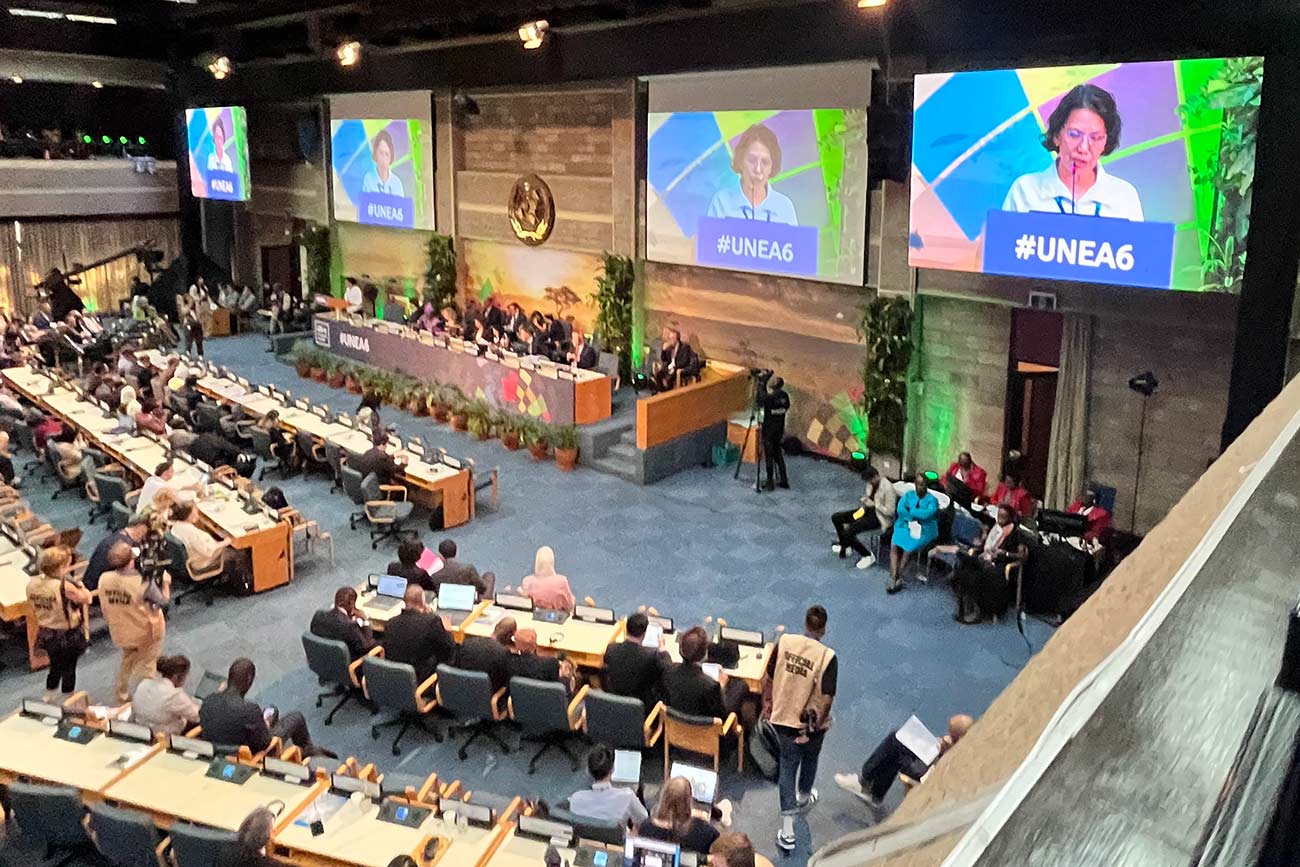Youth Perspectives: From Ground to Growth - UNEA-6's Vision for Sustainable Land Management and Agriculture

The 6th session of the United Nations Environment Assembly (UNEA-6), convened in Nairobi, Kenya, from 26 February to 1 March 2024, marked a pivotal moment for the global environmental agenda. As the highest environmental body addressing the critical environmental challenges of our time, UNEA-6 took significant strides in addressing the intertwined issues of climate change, biodiversity loss and pollution. The United Nations Environment Programme (UNEP) played a central role in facilitating this crucial gathering, emphasizing the urgent need for sustainable agriculture and land management practices to be at the heart of environmental discussions.
Framework of Commitment and Action
UNEA-6 concluded with significant outcomes: a ministerial declaration, 15 resolutions and two decisions aimed at countering the world's environmental crises. Notably, Resolution UNEP/EA.6/L.17 marked a collective pledge to fight against desertification, land deterioration and drought. This resolution spotlighted sustainable farming and land care as essential practices for ecosystem protection and community well-being.
Strategic Priorities and Local Impact
The assembly highlighted the vital role of sustainable agriculture in feeding the global population, particularly in vulnerable regions. It advocated for land management strategies aimed at maintaining or enhancing land health to preserve productive lands and ecosystem services.
The importance of Indigenous Peoples' and local communities' knowledge in land care was recognized. Their traditional and sustainable practices are key to boosting ecosystem resilience.
UNEA-6 urged policies in line with the United Nations Convention to Combat Desertification's Strategic Framework for 2018-2030, focusing on drought management, monitoring and early warning systems.
The Role of Collaboration and Capacity Enhancement
The resolution called for cooperation among environmental conventions to ensure a unified environmental governance approach, incorporating biodiversity, climate action and desertification prevention.
It also highlighted the importance of capacity-building and private sector engagement in sustainable land management.
Incorporating World Food Forum's Efforts
As a Youth Policy Board (YPB) member of the World Food Forum (WFF), I have closely followed the discussions on environmental governance and food systems, particularly those from UNEA-6. The WFF’s initiatives closely align with the objectives outlined at UNEA-6, especially in implementing sustainable agricultural practices and land management strategies.
WFF's efforts to mobilize youth, innovate in food systems and foster global partnerships play a crucial role in realizing the revolution's goals. The WFF flagship event is a dynamic global platform that breaks through barriers of age, geography and industry to reshape the future of our food systems.
This year’s theme, “Good food for all, for today and tomorrow” emphasizes WFF’s dedication to sustainable practices, the importance of mindful consumption and the push towards improved recycling methods, significantly aiding in the practical implementation and broad impact of the UNEA-6 agreements.
Looking Forward
The UNEA-6 resolutions serve as a guide for integrating agriculture and land management into the sustainability agenda. With the WFF's support, these global resolutions can lead to real-world benefits. Continued engagement with environmental governance is crucial for a sustainable, resilient and inclusive future.
Further Engagement and Literature
To further engage and actively contribute to shaping a better food future, involvement in youth-driven processes that prioritize action, culture, education and innovation is crucial.
Stay connected with the World Food Forum. Following the WFF allows you to join a community dedicated to fostering sustainable food systems through youth-driven initiatives.
Written by: Vikrant Srivastava.




